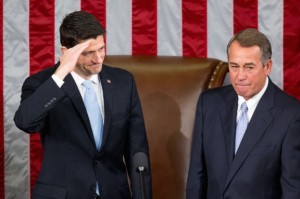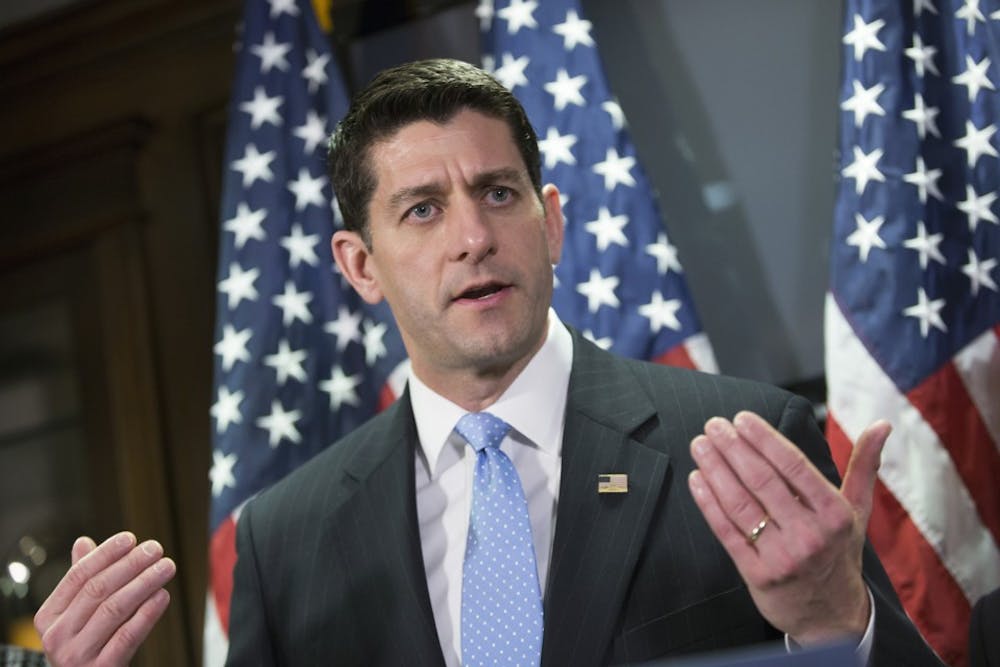By Gabrielle Beacken
Nation & World Editor
Wisconsin’s Republican Representative Paul Ryan was elected as the 54th speaker of the house on Thursday, Oct. 29, the New York Times reported. Ryan succeeded Republican Representative of Ohio John Boehner, after Boehner served nearly five years as speaker.
“I leave with no regrets, no burdens,” Boehner said in an address to Congress, the New York Times reported. “If anything, I leave the way I started: just a regular guy, humbled by the chance to do a big job.”
Now the youngest speaker of the house since 1869, at 45-years-old, Ryan was elected with a wide margin of 236 votes, including all but nine House Republicans. The nine nays are a part of the Republican hard-line conservatives caucus, the House Freedom Caucus. This small, but influential group of Republicans was the driving force behind Boehner’s Speaker of the House resignation, according to the New York Times.

Originally reluctant to be nominated for the position, Ryan said he needed the support of his party to rally behind him, the New York Times reported. Ryan has insisted that as Speaker, the Freedom Caucus must too offer him their support. According to the New York Times, a closed-door meeting in the beginning of the week revealed that 43 members of the Freedom Caucus opposed him. However, for Ryan to garner the 218 votes necessary to become Speaker, members of the Freedom Caucus had to vote for Ryan despite their contrasting views.
Ryan gained national recognition when he was selected as the vice president nomination in 2012 under the Republican presidential candidate Mitt Romney. As the new speaker of house, Ryan hopes to form bipartisan relationships, however difficult that may prove to be, according to the New York Times.
“Let’s be frank: The House is broken,” Ryan said to Congress, the New York Times reported. “We are not settling scores. We are wiping the slate clean.”
Ryan will face complicated obstacles from the deep division within his own party, while also confronting opposition from the Democratic Party that has disagreed with his ideologies for years.
“Make no mistake — my Democratic colleagues and I will continue to have deep policy differences with Speaker Ryan on the vast majority of issues,” said Democratic Senator Harry Reid of Nevada, who serves as the Senate minority leader, the New York Times reported.
Ryan must also consider the degree to which he is willing to clash with the president. According to the New York Times, already drafted spending bills are filled with conservative agendas that severely weaken the president’s health care laws and financial regulations.
To avoid a government shutdown before Christmas, Ryan must deliberate how far he is willing to conflict with the president and House Democrats, as well as his own divided party, the New York Times reported.










